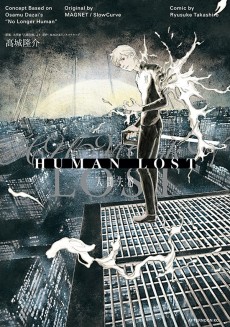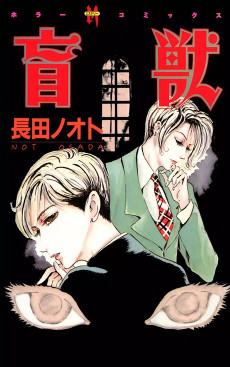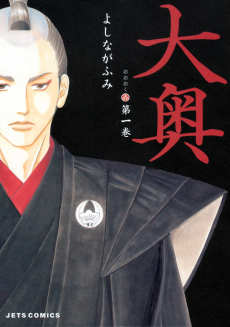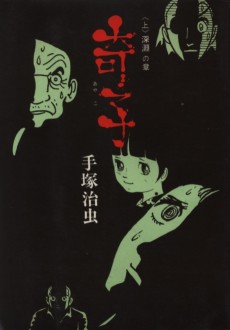NINGEN SHIKKAKU
STATUS
COMPLETE
VOLUMES
3
RELEASE
April 20, 2018
CHAPTERS
24
DESCRIPTION
Mine has been a life of much shame.
I can’t even guess myself what it must be to live the life of a human being.
Plagued by a maddening anxiety, the terrible disconnect between his own concept of happiness and the joy of the rest of the world, Yozo Oba plays the clown in his dissolute life, holding up a mask for those around him as he spirals ever downward, locked arm-in-arm with death.
Osamu Dazai’s immortal—and supposedly autobiographical—work of Japanese literature, is perfectly adapted here into a manga by Junji Itou. The imagery wrenches open the text of the novel one line at a time to sublimate Yozo’s mental landscape into something even more delicate and grotesque. This is the ultimate in art by Itou, proof that nothing can surpass the terror of the human psyche.
(Source: Viz Media)
CAST
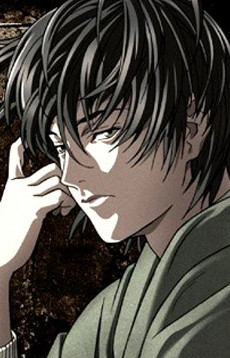
Yozo Oba
CHAPTERS
RELATED TO NINGEN SHIKKAKU
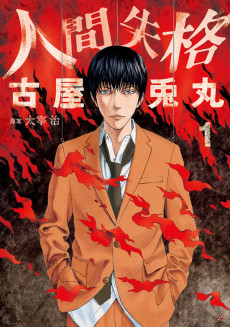 MANGA DramaNingen Shikkaku
MANGA DramaNingen Shikkaku MANGA DramaNingen Shikkaku Kai
MANGA DramaNingen Shikkaku Kai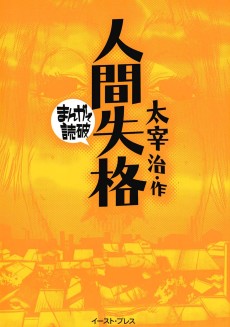 MANGA DramaNingen Shikkaku
MANGA DramaNingen Shikkaku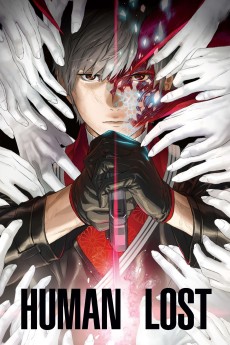 MOVIE ActionHUMAN LOST
MOVIE ActionHUMAN LOSTREVIEWS

TheGruesomeGoblin
90/100A haunting Junji Ito adaptation of Osamu Dazai's soul-crushingly bleak final story.Continue on AniListCONTENT WARNING: NO LONGER HUMAN DEALS WITH VARIOUS DISTURBING AND POTENTIALLY UPSETTING SUBJECTS. AND EVEN PUTTING ALL THAT ASIDE, IT IS PURE UNDISTILLED DEPRESSION. LIKE IT IS WITHOUT A DOUBT ONE OF THE BLEAKEST STORIES I’VE EVER COME INTO CONTACT WITH.
An Introduction

No Longer Human is a novel by Osamu Dazai, and it is apparently the second best selling novel ever in Japan. And thus, there’s no end of adaptations of it. Personally, my first exposure to the story was its inclusion in a compilation anime of a bunch of other things, and it was like four episodes long.
By the end of those four episodes, I thought I had experienced enough of No Longer Human for a lifetime.

While I wouldn’t go quite as far to say I despised it, it was a soul-crushingly bleak and pretty much painful and miserable experience from beginning to end. And I hated the protagonist with every fiber of my being because he’s just one of those characters who somehow makes the absolute worst decision at every possible move.
So, to be blunt, I probably would have never given this story a second chance… if I hadn’t learned Junji Ito did an adaptation of it.
Usamaru Furuya also apparently did his own adaptation of it, which I’ll likely read now at some point in the future.So, how did I like Junji Ito’s version of the story?

Well, it was a soul-crushingly bleak and pretty much painful and miserable experience from beginning to end. And I hated the protagonist with every fiber of my being because he’s just one of those characters who somehow makes the absolute worst decision at every possible move.
And I fucking loved it.
Junji Ito’s No Longer Human
The horror spin really suits this story.

Not even to mention I somehow didn’t even think about how truly well suited Junji Ito was to adapt this story about a guy who eventually ends up believing all his problems stem from women. Junji Ito being the man whose manga career began via a monstrous female character.
There are multiple points in the story where Yozo is imagining all of the women from his past coming back in a literal swarm to haunt him. It was at this point when it finally clicked in my head.

“Oh no yeah, Junji Ito was actually the perfect person to adapt this story.”

The more and more I think about it, it really is perfect. Yozo Oba is literally just male Tomie.
Minus the immortality and the ability to spawn alternate selves after being dissected, of course.He has a strangely powerful attraction that he seems unable to stop from pulling in women. Yet all of the women who become involved with him either end up dead or just driven to ruin or insanity.
But no really, the Junji Ito horror doesn’t even feel the slightest bit out of place in No Longer Human because it just all bleeds right back into exploring the psyche of Yozo Oba, our protagonist.

Who, I refuse, to believe that anyone who has read No Longer Human continued rooting for the whole way through.

Yozo Oba, the protagonist you're meant to despise with every fiber of your being

I really feel like Yozo Oba is one of the most unlikable protagonists I’ve ever encountered in anything. It’s not like the thing where a character has some good qualities but he’s just going in a bad direction. He has no redeeming qualities. His entire character is that he cannot relate to other human beings. Rather, he finds them terrifying. So he hides behind the persona of a clown and thus basically ends up spending almost his entire life lying.

As a child he’s sexually abused by both a male and female house servant and doesn’t report either of them to his family because he feels like it’d be useless to do so.

Which he immediately hypothesizes is part of the root of why he became the sort of person he ended up being. Yet it becomes increasingly harder to even try and sympathize with him. As even when he's a mere teenager he has a moment where he contemplates driving an iron pick into his friend's brain merely because he was able to see through the facade that is Yozo Oba, the humorous clown of the Oba family.

And while his hand stayed at the last second, he still ended up causing Takeichi's death. The first specter that would end up haunting him for the rest of his life. Deservedly so, may I add. After all, once he was gone, Yozo immediately felt relief. The person who had been able to see him for who he truly was, was gone.

Cue a life of drinking, debauchery, morphine addiction, and getting involved with movements you don't actually give a shit about but then suddenly find yourself leading a march against the police. And when the uprising group you're leading clashes with them, you kick a woman you were previously involved with in the face so you can get away because you've finally realized you've gotten too deep in this movement.

One of the few mercies of No Longer Human is that Yozo spares the single mother he eventually becomes involved with after he survives the attempted double suicide he undergoes with a random waitress he becomes involved with. And by spare, I mean he leaves the single mother and his daughter after realizing that despite how shitty of a presence Yozo Oba was, the single mother and her daughter were still willing to accept him. Albeit, the daughter still missed her real father which is completely understandable but as fragile as Yozo Oba is he's still wounded deeply by the child's words.

Yet while I still consider him leaving them the right thing to do, by being unable to accept being "chained down" and thinking that they were "too good for him", he basically flushed yet another chance to turn his life around down the toilet. As him leaving those two is when his life really gets bad. And--
oh yeah I completely skimmed over the part during his teenage years when he got both of his cousins pregnant and one of them stabbed the other to death out of jealousy

...So anyways, when his life gets REALLY bad is when he gets married to a girl who seems completely unwilling to believe that Yozo Oba is a bad person. He promises her that he's gonna quit drinking and then the day after he shows up drunk, tells her, and then she doesn't believe him. So he just straight up tells her well oh yeah also I've been sleeping with the madam of the bar. And she doesn't believe that either.

And then all of a sudden they're getting married, and you as the reader is just going oh for fuck sake there's no way this is going to end well. And of course, it doesn't.

Because nothing does and that's really the entire moral of the story of No Longer Human.
Osamu Dazai's Final Story
If it hasn't become clear by this point, the story of No Longer Human is pretty fucking bleak.

But then when I read this adaptation and actually looked a bit more into it, I realized the actual story itself is just the tip of the iceberg. No Longer Human is in fact the final story Osamu Dazai wrote before his death. How did he die, you ask?
He committed a double suicide... like... in No Longer Human.
And mind you, it wasn't even the first time he attempted a double suicide. Or suicide in general, for that matter.
Hell, a lot of No Longer Human is apparently just almost an autobiography. Which is what brings me to the major twist of the Junji Ito adaptation that really pushed this manga over the top for me despite previously finding No Longer Human an overall miserable experience.
Before I straight up spoil it, I will warn right off the bat that it is completely fucked up.
~!
I call it a twist but the manga literally immediately starts with a hint of it. But since the first chapter's title is literally just Yozo Oba and also I didn't see this twist coming, I just assumed it was a future look at Yozo's double suicide but... guess I really should have caught the line about "the newspapers having a fuss tomorrow."
Junji Ito's twist with this adaptation is that Osamu Dazai himself shows up in it as a character who meets Yozo Oba in the mental hospital he ends up in after he attempts to fatally overdose on morphine. This is one of those twists that if not handled exactly perfectly, would really just seem completely in poor taste.

But in my opinion, it actually really fucking sells the horror of No Longer Human. In the story, Osamu Dazai serves as the person Yozo Oba finally confesses his endless misdeeds to while he's losing his mind from the morphine withdrawal. And as they further converse with each other, they find that their lives are eerily similar to each other.
Their terrible fathers disowning them, their multiple suicide attempts, their leading a movement, their addiction to morphine...

...and to just nail the point in as far as it can possibly go, Junji Ito made Yozo Oba look as much as Osamu Dazai as possible to the point where Yozo literally mistakes Osamu for himself.
To be fair, he was still going batshit insane from morphine withdrawal at the time.They are both eventually released from the hospital with Osamu Dazai having gained Yozo Oba's permission to turn his life into a novel. Twelve years later, and Osamu Dazai travels to where Yozo Oba now lives and comes face to face with his old friend in hopes of getting of regaining some of the hope he had gotten from their short lived friendship back in that hospital.
But the Yozo Oba he met back then is nowhere to be found.

All that's left is merely a shell. An empty husk of what once was a human being. This is one of the most fucked up scenarios where like a creator comes face to face with their own creation I've ever experienced in fiction.
Not that I've run into many since it's such a bizarre idea to try and pull off.Clearly disappointed, Osamu Dazai leaves and the final pages of the manga is Yozo Oba's child who is just a reincarnation of Takeichi running down the beach with a kite fashioned from a newspaper containing an article about OSAMU DAZAI'S SUICIDE.
And then the final page is Yozo Oba, Osamu Dazai's creation, staring at the reader with an empty smile and it is fucking haunting.
"Now I have neither happiness nor unhappiness. Everything passes."

Holy fuck.!~
Conclusion
It's safe to say at this point I have a love/hate relationship with No Longer Human.

But after having read Junji Ito's adaptation of it, I at least now feel as if I understand both the appeal and the legacy the story has a bit better. Like I truly do genuinely enjoy bleak and just fucking depressing stories, but god damn I need the protagonist to offer something.
Like just give me something. Some scrap of likability or hint that they might still be capable of redemption. Like I always thought a story like this would never work for me. A story that is just pure misery with a protagonist that I just feel hate and disgust towards.

The man swallows an entire box of sleeping pills then suddenly finds that he's descending down into Hell and is just like
"oh, didn't expect that. Guess I better start trying to vomit misfortunes to get myself out of this mess."
...What the fuck were you possibly expecting?

Horiki's a complete asshole pretty much the entire story, but goddamn it, he's pretty right on about Yozo Oba's character. But yet as much as I hated Yozo Oba this version of the story just fucking latched its hooks into me and would just not let go. And I truly and utterly did not expect to be saying this at the end of this review but this is probably one of my favorite Junji Ito manga overall.
As much as I love his normal horror, the majority of it has way lighter a tone to it. A lot of it you're really just reading for the monsters and the crazy fucked up trademark Junji Ito body horror. But with this, he took all of the bleakness of Osamu Dazai and he just fucking ran with it. There's a whole bunch of traditional Junji Ito horror throughout the whole thing, but it's never overshadowing the story. It's always in service to it.

Junji Ito's version of No Longer Human infuriated me, frustrated me, but there are just so many pages and moments of it that will continually fester within my brain forever.
And what more can I ask of a horror than that?
Osamu Dazai's No Longer Human adapted by Junji Ito for me, is a 9 out of 10.


Gramding
95/100A dark story about depression trauma... and coping with it in sometime really dumb ways but understandable onesContinue on AniListSince I've recently seen the review of TGG for this manga and thought: man you've bought it already just go ahead and read it. Ive seen many points put up from some people that they hate Oba and it that he does the most stupid things in every situation, but I've wanted to elaborate some different angles. So get ready for some SPOILES. Just as a heads up this is in no way intended to say anyone else is wrong, all opinions are valide and I can understand all of them. Ive just found my perspective was not one wich was described anywhere else.
Oba is our Protagonist whom we follow from early childhood throughout his life. From start to finish Oba seems to get in a lot of shit due to his metal state and his feelings / distaste for human beings. This distaste is not stemming from evil motives but from not understanding and feeling connected to his family and all the people around him. Thus he accepts a personality of a clown. Creating a persona around him of a foolish clown whom you schuld not take seriously. Nobody really knows who Oba really is I think he even lost himself in his persona. In the manga there are many points in wich Oba does the most ridiculous stuff.
The personality of the clown Oba accepted, was a very relatable one. Out of fear of exposing ones own personality, one might accept a persona or if you will a mask. The persona is to distract from the person that puts up the persona. He shields himself of critique and judgment by no being himself. All the judgment he would receive targets the persona and is easy to deflect and ignore.

Early on he broke his leg and went to the hospital. There he thought he could be alone and not get stressed out by other people. A time where he could relax and not feel the need to be someone else than himself. His expectation got shattered by his 2 sisters wich took turns taking care of him in the hospital. Somehow they both felt attracted to him. They one after another wanted to know whom he liked more. He being the person that he is, not wanting to upset anyone, told them separately that they were his favourite. From this emerged the violent murder of on of his sisters by the other one out of jealousy.
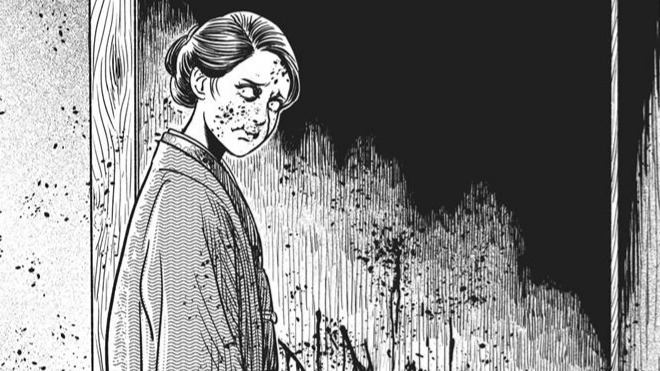
This is one example wich made me reflect and see my own actions. I don't want to upset anyone that time close to or event know slightly. This mindset is one I can relate to.
The above examples are ones I've found very easy to relate to from my perspective. In many situations that arise throughout the story Oba does definitely do some stupid shit. Joining a illegal communist organisation. Getting with the wrong people and nose diving to his demise. Doing drugs, hookers and really dumb shit. But seeing it from the perspective of him having psychological problems, anxiety, depression and many more. His dislikable character becomes relatable in ways I've thought were not addressed elsewhere.
Oba comes from a place where his life was bound to be shitty. He got raped several times at a young age, wich only fuled his distaste for humans. His persona got exposed by one of his classmates wich shook him to death. Wiche endet in the suicide of said classmate. I can see why Oba in this situation did what he did. He was angry that he got exposed. He was frustrated and not to forget a kid wich did probably not have bad intentions. But playing with someone's feelings is a really dumb thing and Oba learned it the really hard way. This is a case wich came to haunt him in his later years where he was haunted by his dead classmate. From the point of him being exposed his clowning never felt right since he always heard the phrase:"You did it on purpose.".

Though there were many situations I was not able to relate to Oba I've found him still to be likable. His point was when not relatable, understandable. His past kept hanging over him and never let go of his mind.
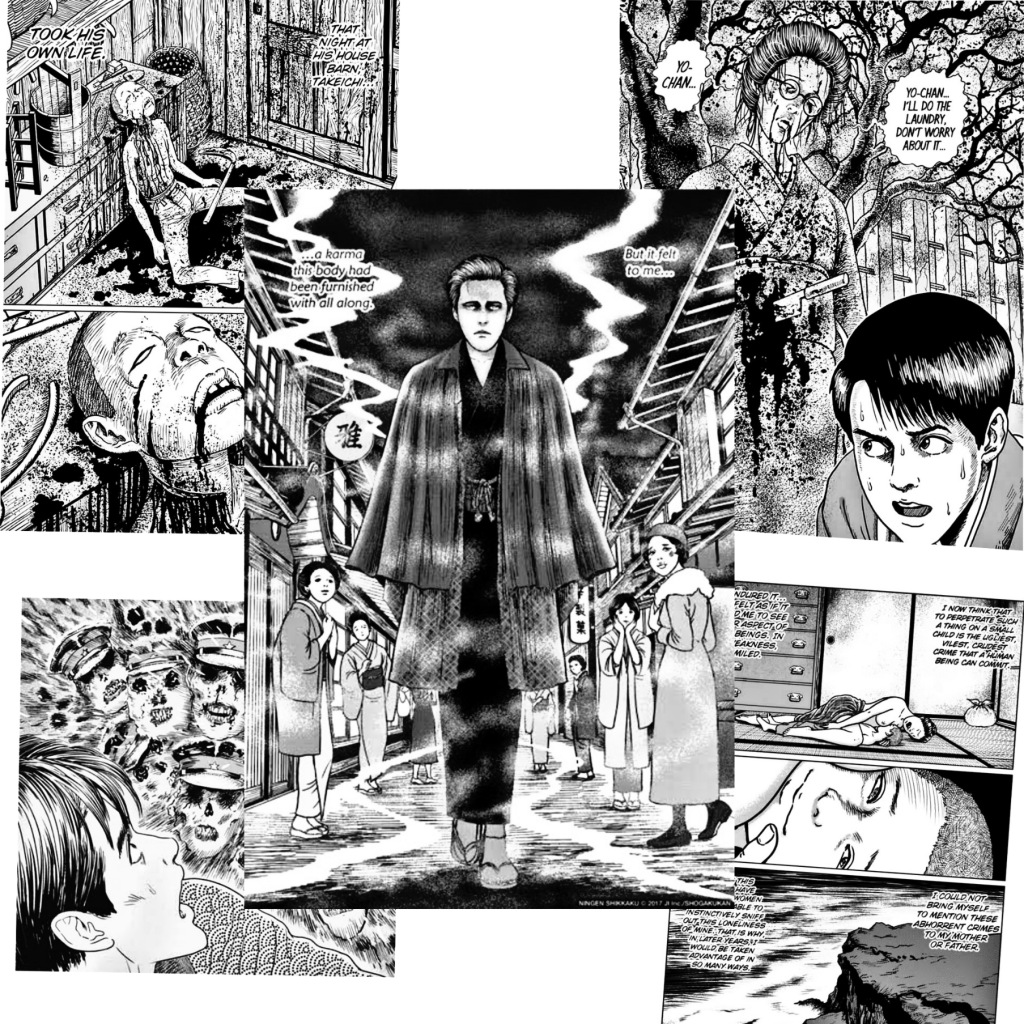
I think No longer Human was a very good story. It shows different thought processes behind sometimes wired situations. It is a grim dark tale about depression and alienation from the very race you belong to. It displays coping whit depression in blunt ways like drugs, sex and so on.

The whole story was bleak and depressing. Seeing a person decent into his own mind of madness, put in place by himself and the people around him. His exploration of all of his "10 sins" witch made him the person he ended up being. For the right people it might be a self reflection, but for others the character seems like a huge piece of shit which is not relatable at all.
The earlier stages of his life I've found more relatable but the further his life Progresses the further away from any norm of living he gets. His Opium addiction, the Attempted lovers suicide, his hasty marriage. There were many things he's done witch are totally fucked and out of grasp of normality.For the visuals, Junji Ito´s style suits the story in a way I've never seen. With his unique style so many elements come to life in the story its insane. The emotions are captured in the perfect way. The horror twist put in place helps the story convey the psychological decent of Oba.

I knew from the start that this one is somewhat and autobiography of the original author of the story: Osamu Dazai The whole idea that someone had to live through this shit just makes this hit on so many levels. There are aspects of life that should be unexplored and never lived through but he did. And all comes back to the suicide from the very first pages of this manga. Osamu Dazai killed himself in the way portrayed at the very beginning of this manga. This is fucked.
So all in all I would give this 95/100

toitoist
10/100Ningen Shikkaku is a manga that haunts me... it haunts me to think about how bad it is.Continue on AniListNingen Shikkaku is the autobiography of Osamu Dazai, told through the character Oba Yozo. Throughout the work, the protagonist narrates his process of dehumanization, gradually distancing himself from society. The book is narrated in the first person, creating a bond between the reader and Yozo. I believe the discomfort experienced while reading Ningen Shikkaku stems from how the reader might identify with the protagonist's experiences, particularly with the absence of what makes him human. As the story progresses, the protagonist's moral degeneration intensifies, leading him to further withdraw from society.
While the book Ningen Shikkaku offers the reader a “character analysis,” allowing for an intimate relationship with the protagonist, Junji Ito’s manga adaptation discards all the character development—which I believe to be the most interesting part of the book—to focus on constructing “horror” through the idea of the grotesque. Ito creates a new narrative for Ningen Shikkaku, yet he doesn’t dare to stray far from the original content, adapting the work in a way he believes makes it more shocking. The biggest shock I experienced while reading the manga was seeing Ningen Shikkaku adapted in such a crude way, fulfilling a completely different function than the book and thus distancing the protagonist from the reader. Junji Ito's attempt to make the work more shocking ends up turning the events into exaggerated and caricatured moments, losing the subtlety and ironic tone present in the original content. Consequently, the manga becomes very superficial, failing to delve into Yozo’s mind and what disqualifies him as a human, nor does it use these shocking moments effectively, as they become so exaggerated and silly. I believe this is one of Junji Ito’s most clumsy mangas, unfortunately not as comical as Gyo or Uzumaki.
I would like to compare the grotesque in Suehiro Maruo’s manga Ultra Gash Inferno with the grotesque in Junji Ito’s Ningen Shikkaku. Ultra Gash Inferno is filled with sex—repugnant sex, sex that involves human disfigurement, something violent and repulsive, yet still full of aesthetics, beauty amidst the purest ugliness. Meanwhile, the sex in Ningen Shikkaku tries to be vile for its own sake. The ugliness is moral; the grotesque is in the act of sex itself. The book contains few sex scenes, and in those moments, the protagonist feels apathetic about the situation; he doesn’t feel guilty or like a sinner. In the manga, the protagonist is literally haunted by ghosts from his past, most of whom are women who passed through his life, with whom he slept at some point, leading to great misfortune that further impoverishes Yozo. Junji Ito adapts the sex scenes using the same moral criticized throughout the book: sex is wrong. This is where the horror of the manga concentrates—shocking with sex scenes and ugly characters. Junji Ito is considered a disruptive author, but in Ningen Shikkaku, the ugliness and grotesque reflect society’s moralistic view of what is happening in the plot.
The ghosts of Yozo’s past, heavily present in the manga, distort the protagonist’s personality, making his experiences seem trivial, and turning the work into something overly expositional, not allowing for a real sensibility to the events. These moments end up serving only as a stage to judge the protagonist, condemning him for being so far removed from what is considered “right” in Ito’s eyes. The focus of the manga is on showing how miserable Yozo is because of his sins, not because of his disconnection from society, his shame, and his fear of other people. This causes a significant loss of the existentialist content and psychological analysis of the protagonist present in the original work, giving way to the moralism employed by Ito in his adaptation. Ito doesn’t innovate much in terms of plot or aesthetic choice, maintaining a conservative view of the work, unable to shock without being exaggerated or caricatured.
In his interview with VIZ, “A Talk with Junji Ito,” Ito comments that there is a limit to the content of his stories: not to cross the boundaries of common sense. Adapting a work that isn’t tied to current morals like Ningen Shikkaku using this “common sense” only serves to reinforce Ito’s viewpoint on the work, which should make him the last author to adapt this story (Furuya should be the second-to-last).
In conclusion, the positive aspects of Junji Ito’s Ningen Shikkaku manga are due to the merits of the original work, with the manga being a distorted and superficial adaptation, exaggerated to the point of bad taste. If you’re interested in the content of the manga, read the book instead.
SIMILAR MANGAS YOU MAY LIKE
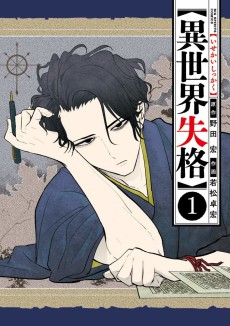 MANGA ComedyIsekai Shikkaku
MANGA ComedyIsekai Shikkaku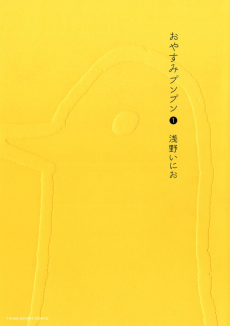 MANGA DramaOyasumi Punpun
MANGA DramaOyasumi Punpun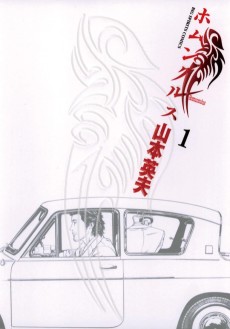 MANGA DramaHomunculus
MANGA DramaHomunculus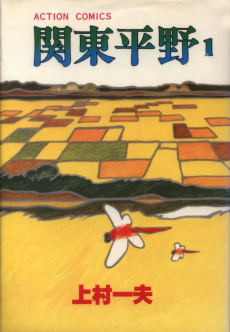 MANGA DramaKantou Heiya
MANGA DramaKantou Heiya
SCORE
- (3.85/5)
MORE INFO
Ended inApril 20, 2018
Favorited by 383 Users


